Muslims around the world on Sunday began celebrating Eid al-Fitr, a normally festive holiday marking the end of the fasting month of Ramadan, with millions under strict stay-at-home orders and many fearing renewed coronavirus outbreaks.
The three-day holiday is usually a time of travel, family get-togethers and lavish daytime feasts after weeks of dawn-to-dusk fasting. But this year many can only celebrate at home with immediate family, with virus fears dampening the holiday spirit.
7 View gallery
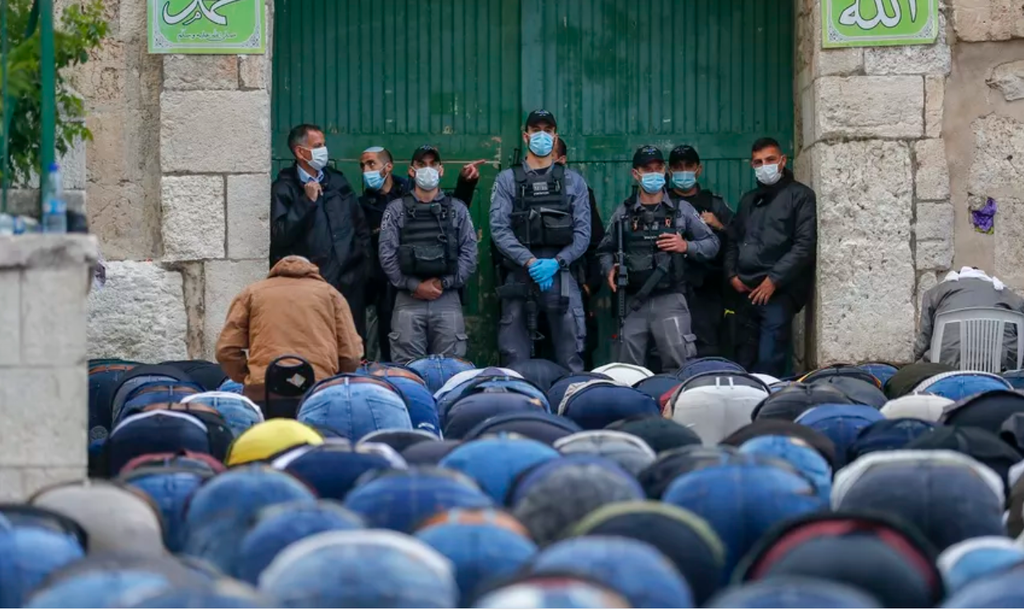

Israeli security forces clad in masks due to the coronavirus pandemic look on as Muslim worshipers gather to attend the prayers of Eid al-Fitr outside the closed Al-Aqsa mosque complex in Jerusalem's old city
(Photo: AFP)
In Israel, Muslims have had to endure the stricter lockdowns during the course of the Ramadan as the Al-Aqsa mosque complex in Jerusalem's Old City will reopen only later this week.
In Jerusalem, police said they broke up an "illegal demonstration" and arrested two people outside the Al-Aqsa mosque, which Muslim authorities have closed for prayers since mid-March and will not reopen until after the holiday.
Al-Aqsa is the third holiest site in Islam and would ordinarily welcome tens of thousands of worshippers during the Eid. The hilltop compound is also the holiest site for Jews, who know it as the Temple Mount. The site has long been a flashpoint in the Israeli-Palestinian conflict.
President Reuven Rivlin thanked Arab-Muslim leaders “who contributed to the containing of the virus and caring for health and safety of all Israelis, Jews and Arabs, Jews and Muslims alike,” Rivlin tweeted.
7 View gallery
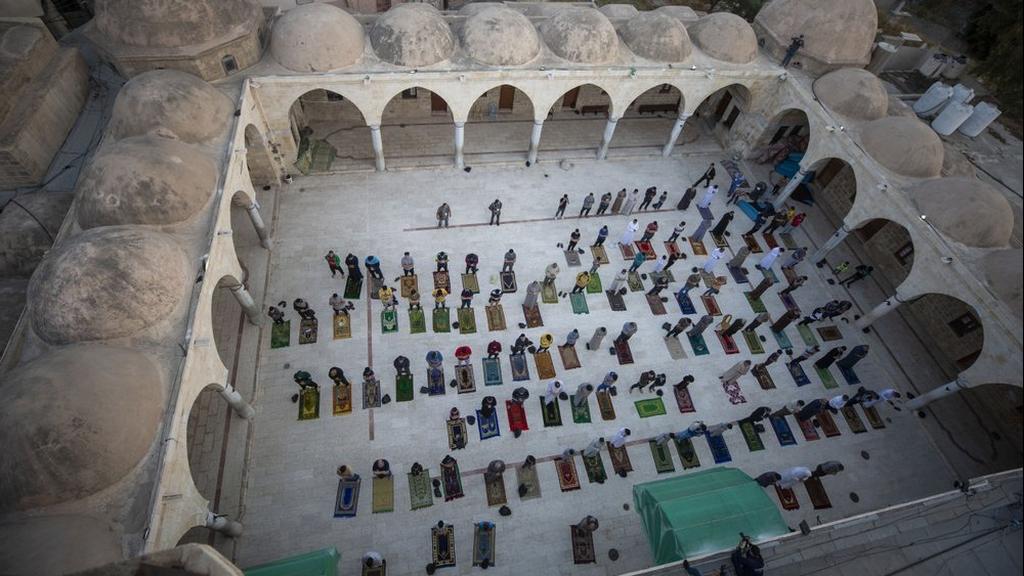

Muslims wearing face masks attend the Eid al-Fitr prayers outside a mosque in Gaza City
(Photo: AP)
Defense Minister Benny Gantz chose to applaud the Arab citizens’ behavior amid the coronavirus as well.
“This year the month of Ramadan was exceptional, in which you passed the month with remarkable responsibility and care, foregoing large prayers and festive meals. To our delight, the collective responsibility in the country bore fruit,” he said in a tweet.
Knesset Speaker Yariv Levin also wished Muslims a happy holiday, speaking in fluent Arabic from the parliament’s podium.
Further dampening the festive spirit, multiple countries - from Saudi Arabia to Egypt, Turkey and Syria - have banned mass prayer gatherings, a festival highlight, to limit the spread of the disease.
Saudi Arabia, home to Islam's holiest sites, began a five-day, round-the-clock curfew from Saturday after infections more than quadrupled since the start of Ramadan to around 68,000 - the highest in the Gulf.
Eid prayers will be held at the two holy mosques in the cities of Mecca and Medina "without worshippers", authorities said on Saturday, citing a royal decree.
7 View gallery
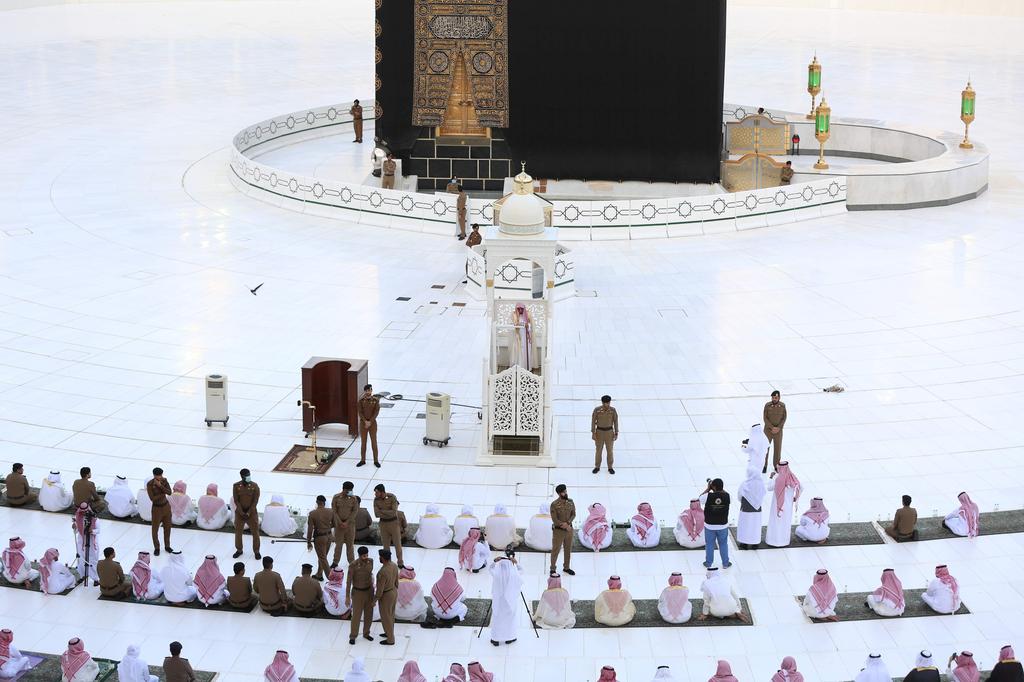

An Imam in a podium while Saudi security forces members, some clad in masks, stand between rows of worshippers gathering before the Kaaba at the Grand Mosque in the holy city of Mecca to attend the prayers of Eid al-Fitr
(Photo: AFP)
Mecca's Grand Mosque has been almost devoid of worshippers since March, with a stunning emptiness enveloping the sacred Kaaba -- a large cube-shaped structure towards which Muslims around the world pray.
In Lebanon, the highest Sunni religious authority has announced the reopening of mosques only for Friday prayers. Worshippers, however, will be subject to temperature checks and sanitary controls before they enter.
7 View gallery
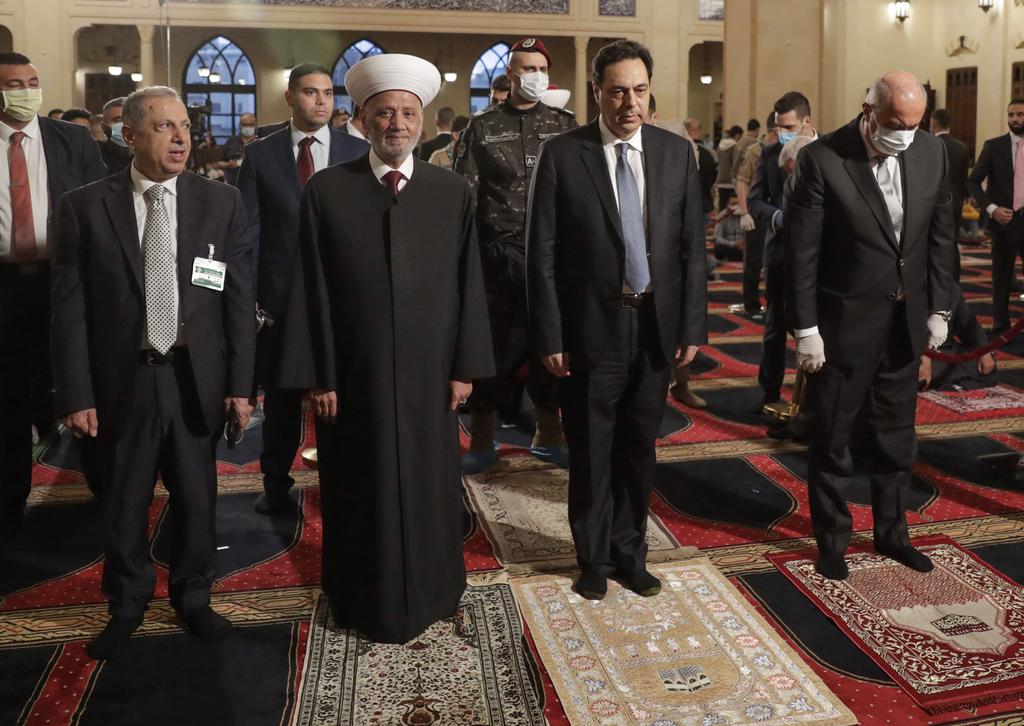

Lebanon’s Grand Mufti Sheikh Abdel-Latif Derian (C-L), Prime Minister Hassan Diab (C-R) and MP Fouad Makhzoumi (R), take part in a morning prayer to celebrate the Eid al-Fitr holiday at Mohammed al-Amin Mosque in Beirut
(Photo: AFP)
Iran, which has experienced the Middle East's deadliest outbreak, has called on its citizens to avoid travel during Eid as it battles to control infection rates.
Iran shut schools and places of worship and banned inter-city travel for the Persian New Year holidays in March, but the restrictions were recently eased.
7 View gallery
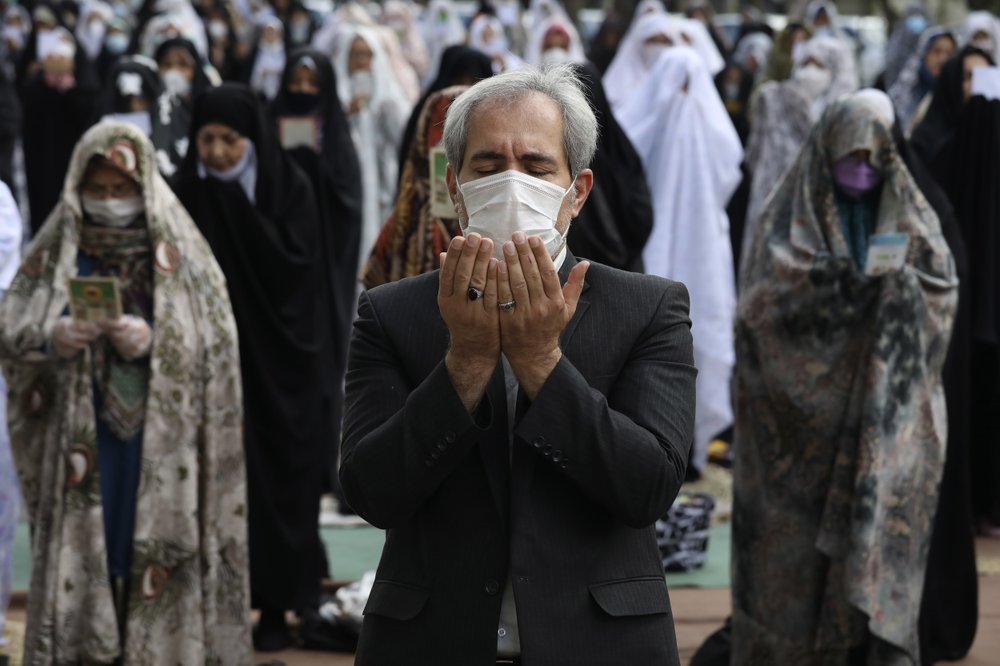

Worshippers wearing protective face masks offer Eid al-Fitr prayers outside a mosque to help prevent the spread of the coronavirus, in Tehran, Iran
(Photo: AP)
Health Minister Saeed Namaki said that the country was focusing hard on avoiding "new peaks of the disease" caused by people "not respecting health regulations".
The exact date of Eid has yet to be set in the Shiite-majority country, but will likely be Monday, in line with the Shiite community's celebrations in Iraq, as announced by top cleric Grand Ayatollah Ali Sistani.
Sunnis in Iraq will mark the start of the festival on Sunday.
7 View gallery
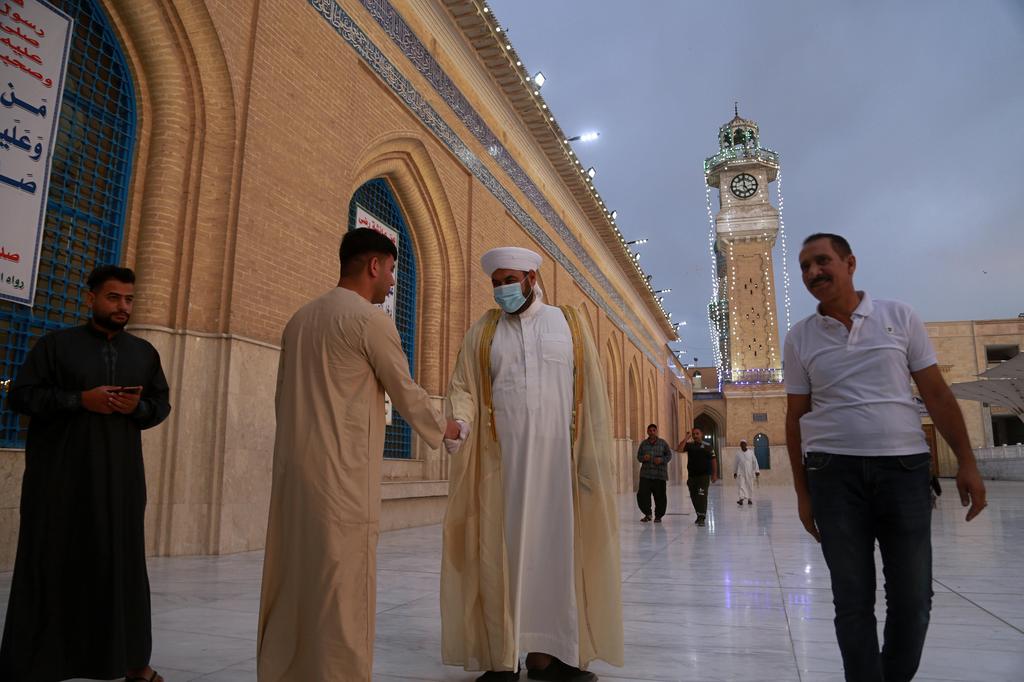

Muslims greet each other after prayers on the first day of Eid al-Fitr holiday at Abdul Khader al-Kilani mosque in Baghdad, Iraq
(Photo: AP)
The neighboring United Arab Emirates has tightened its lockdown, with the night-time curfew starting at 8pm instead of 10pm during Ramadan.
But that has not stopped some families from planning getaways to luxury beachfront hotels in Ajman or Ras Al-Khaimah emirates.
However, Muslims in many countries are set for frugal celebrations amid growing financial distress.
The twin shocks of coronavirus restrictions and falling oil prices have plunged the region into the worst economic crisis in decades.
The coronavirus restrictions have hit businesses hard, including retailers who would normally be preparing for the festive rush, as Muslims save their money for masks, gloves and other COVID-19 protective gear.
7 View gallery
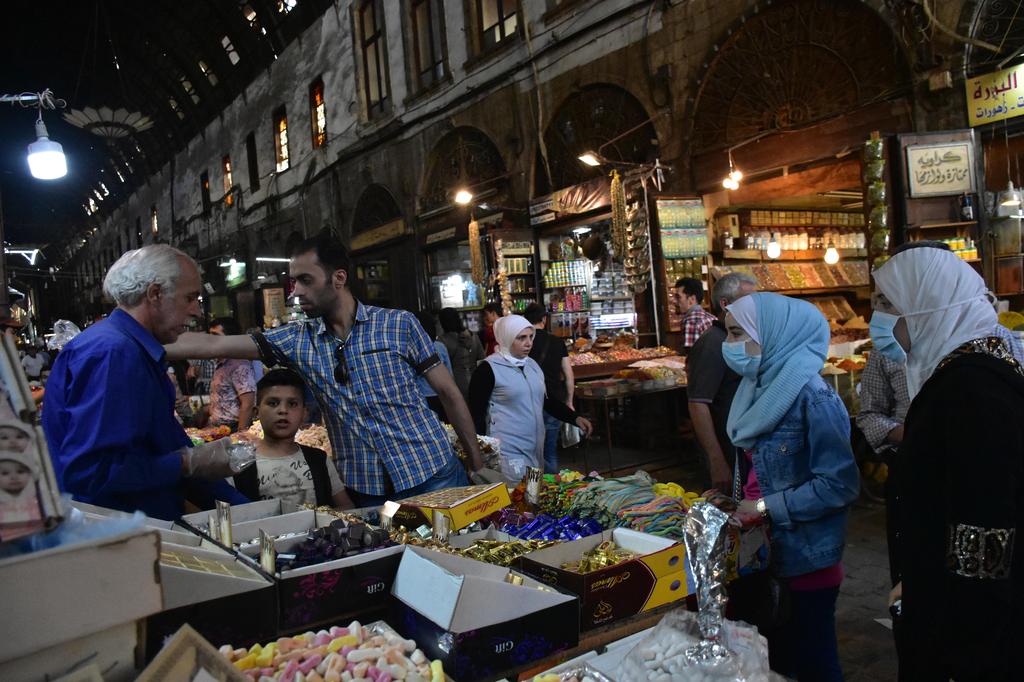

People buy chocolate and candies at al-Bzouriyeh market ahead of the Eid al-Fitr in the old city of Damascus
(Photo: EPA)
In the Syrian capital Damascus, Eid shoppers rummaged through flea markets for clothes at bargain prices as the war-ravaged and sanctions-hit country grapples with a much more entrenched economic crisis.
"The flea market is the only place I can buy something new to wear for the Eid holidays," 28-year-old Sham Alloush said.
"Had it not been for this place, I wouldn't have been able to buy new clothes at all."
But promising some laughs in these dire times, 40 Muslim comedians from across the world will host a virtual show on Sunday called "The Socially Distant Eid Comedy Night".
"This Ramadan has been particularly difficult for communities around the world," said Muddassar Ahmed, head of the Concordia Forum, the organizer of the event.
"We're proud to be pulling together some of the brightest Muslim comedic talents to entertain those celebrating the Eid festival at home, people looking to learn a little bit about Muslim culture, or really anyone in need of a good laugh."

